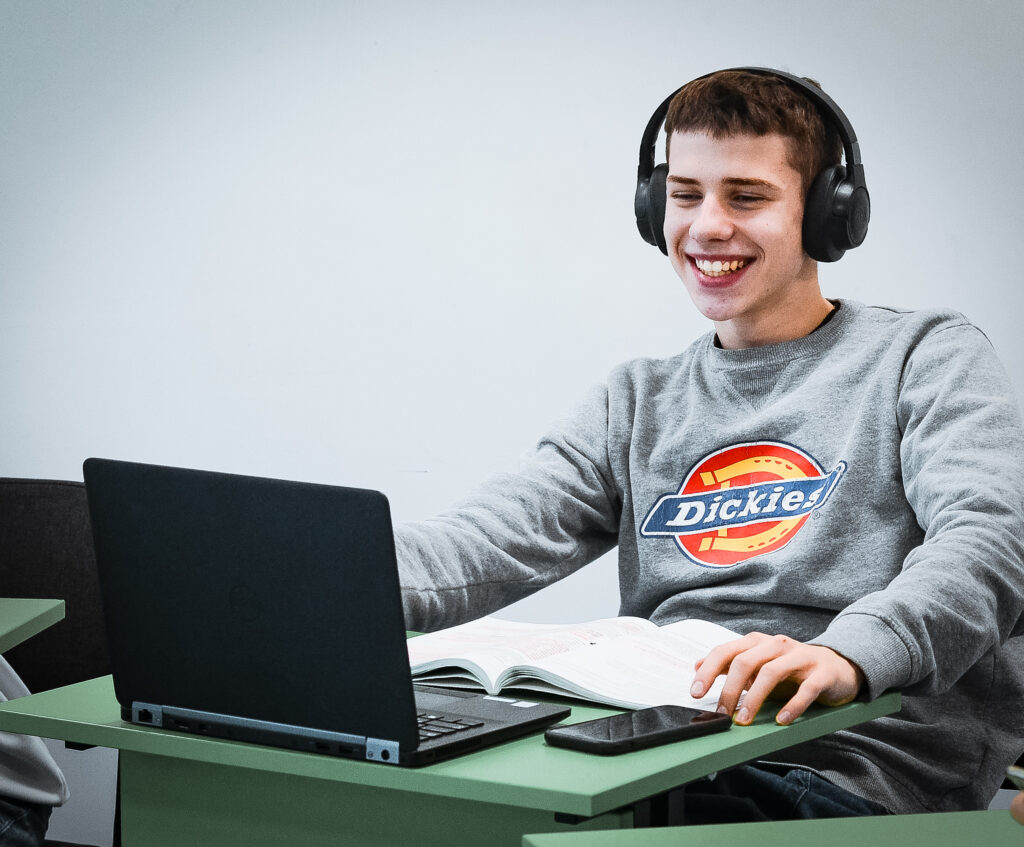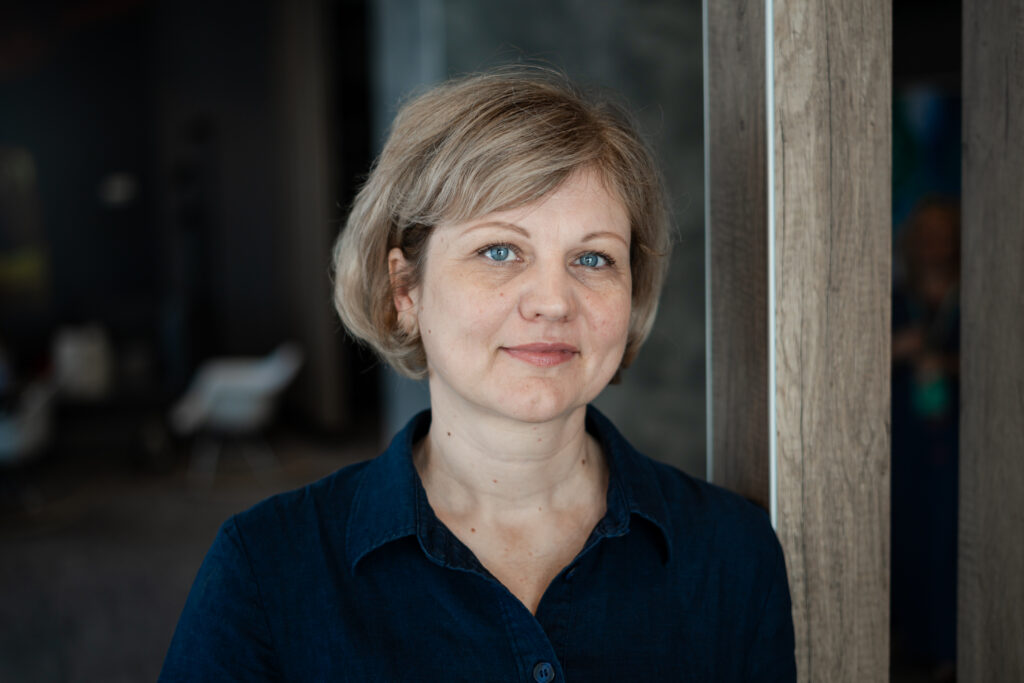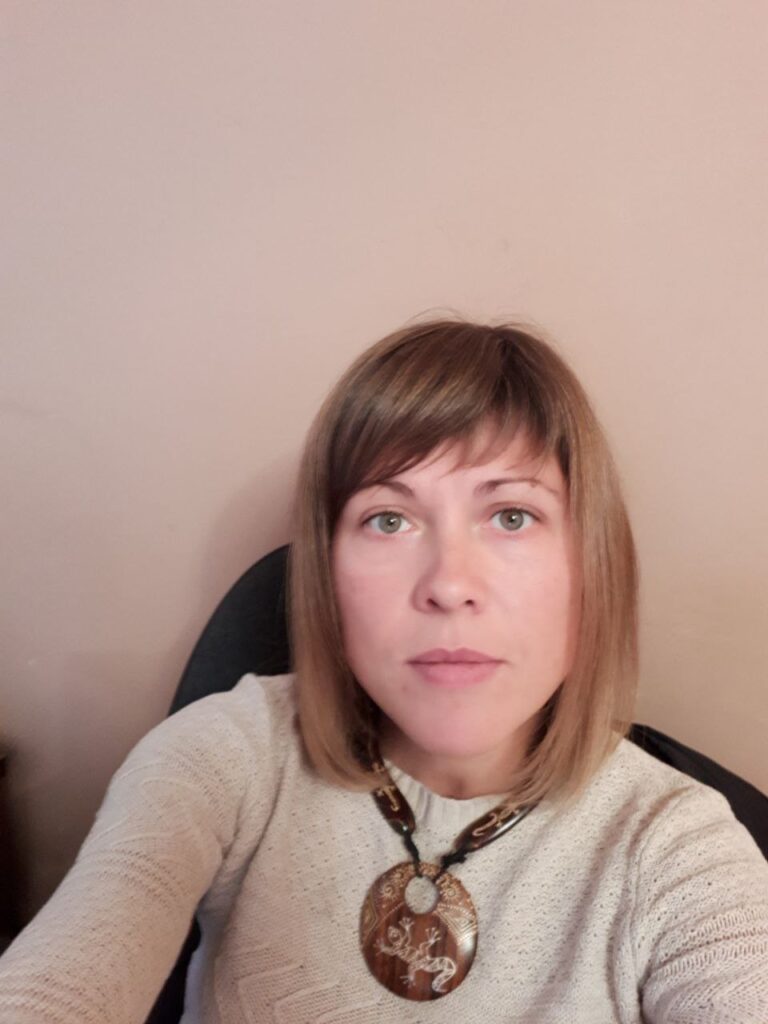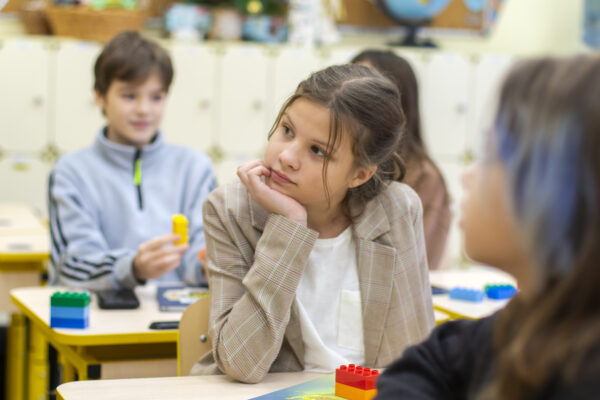

Analysing mistakes in subway ads, writing a real article about Netflix based on data from charts, and also finding out who will finish first – a monkey or a frog. These are the types of tasks that the children were doing at the lessons of Ukrainian and Math within the project “Now I Know”. This is the third five-week summer course, “Now I Know”, and in two waves of this year’s iteration, it has reached 838 children in 4th-10th grades, most of whom (about 75%) now live in Ukraine. In total, the schoolchildren have done 20 lessons in Math and Ukrainian. The lessons involved varying tasks, and the knowledge the children received could be tested at practical classes.
For the Math course 560 tasks have been designed by the pedagogues, and 1890 for the Ukrainian Language. The children took entry and final tests in Math and Ukrainian which integrated both the subject component and the meta-subject component.
According to final tests in Math and Ukrainian, the children showed an improvement in their knowledge of up to 72,2% compared to the entry tests at the beginning of the course.
The structure of the course on catching up on educational losses
The study process in “Now I Know” is focussed not only on catching up on the educational material, but also on the development of competencies that are essential for further education. The team has also developed a framework of competencies (knowledge core) for each level, which is at the foundation of the courses. For example, reading literacy, ability to interpret information, see links and interconnections.
Despite different content and specific nature of teaching Math and Ukrainian, reading literacy is essential for both courses.
“PISA test results were taken into account when this year’s programme was designed, and reading literacy was one of the priorities in the process. The main aim was to develop the students’ ability to critically analyze texts, understand the content on a deeper level, and improve the skills of information processing. As a result of the training, the students’ interest to individual reading and text discussion has increased. The students have become more confident in text analysis, expressing their opinion and providing arguments for it,” says Nataliya Vinnytska, Ukrainian pedagogue.

Teachers based their lessons on real-life situations and adapted the lessons to them. Ukrainian language tasks were text-centered.
“All Ukrainian language tasks were designed around a text that had been provided as a foundation for this or that lesson. The teachers basically had a finished product and pre-prepared assignments around this product,” Iryna Petriv, “Smart Osvita” programme director says about the Ukrainian language course.
The Math course had a pool of questions on different topics, that is why the teachers could choose additional tasks to the main content of the class. This was really helpful in reviewing the previously studied material and for those students who complete tasks more quickly.
“Teachers design the study trajectory according to the analysis of which students they had at the entry level, how they work with the group, and how fast they can progress with this group. The teachers’ task was not to cover all the study materials and subjects, but also to improve the skills of the group of students and select the best study strategy,” says Yuriy Chopyk, Math pedagogue.

Approaches to the academic process and teacher selection
“This year teachers had to go through a demanding selection process, as all the candidates had to meet certain requirements (extended answers to questions, make a video where they were expected to speak on specific topics). All the application forms were thoroughly examined by the team of pedagogues, each answer was assessed on a 10-point scale, and at the end we had a list of teachers who were invited to the next stage, as this was the final selection. The teachers had to receive training,” says Olena Budyk, course manager.
During the meetings, the teachers were working to improve their psychological support skills, upgrade their digital skills, and reflect on interesting and innovative methods of teaching, and look for solutions to return the children’s motivation to study.
“We created methodological guidelines for teachers, where we outline what the teacher should know at the beginning of the project and while working in it. Our objective is to prepare the teachers to work with the children, to work on the platform, to properly plan their lessons in accordance with the children’s level and skills,” says Iryna Petriv, “Smart Osvita” programme director.
As regards the children, after they have covered at least 50% of the course, completed the mandatory entry and final tests, they received a certificate and a motivation letter from their teachers. In the letter the teachers would indicate the level of skills shaped according to the competencies frame, and also included a short comment about what the children did well, and what needs improving.
The students retain their access to the platform with the lessons covered, so at any time in the future they can come back to any subject and do the tasks or catch up on what they had missed during the course.
It is the second year the project team involved experts from the Ukrainian education quality assessment centre, who provide analysis for the course tests. And every time the project “Now I Know” is improving: thanks to the cooperation with the Centre our team has improved the quality of the assessment tool. The experts were making sure that the questions from the entry and final tests would corresponds to the same subjects, so that the results could be analyzed and the team could determine which topics had been covered smoothly and which had been challenging. Now the experts are analyzing this year’s tests, and these results will help us improve the materials for the project’s next iteration. We will also share the results of the experts’ assessment soon.
“I myself attended all the lessons without any supervision or reminders, I was proud of my progress,” feedback from students and their parents.
“The project is really cool, and I will definitely remember it. Moreover, I will now recommend it to all my friends. For example, we had useful materials which we will benefit from in future studies (10th grade in my case). I really like the teachers at the project. Oksana Mykolayivna is a teacher of Ukrainian, she conducted very interesting classes, gave us useful life-hacks about specific topics. Nataliya Anatoliyivna is a Math teacher, she explained difficult topics very well, and also she started and ended the lessons by asking us about our emotional condition, which is very important in our situation. Each of them is well developed and knows the modern requirements of their subjects. The main thing is that the teachers immediately found an individual approach to each student in the project,” says Yeva Hladun, a ninth-grader.
The students wished the project future development and even technological innovation, for example, implementation of their own currency, “know-coins”, which you could earn for the tasks completed and use to buy something interesting on the platform’s personal profile.
“Thank you for the interesting five weeks of study. I received a lot of nice impressions and memories. I will be sincerely happy if I am invited again. I wish peace and all the best to the organizers and the teachers. You are the best,” says Matviy Matsyuk, a fourth-grader.
The children also wanted to see a programme in History, Literature, IT studies and English, and wished the project success and grateful students. And the parents of the first wave of students say that the driver for the course attendance was the improvement of the knowledge and their desire to review and master the problematic topics, and they say that these targets have been achieved despite power cuts and technical issues.
“We hoped to catch up on the educational losses, to receive new learning experience and expand their communication. All that they had hoped for was achieved,” says Anastasiia Matsyuk, mother of a fourth-grader.
The parents also mentioned that the friendly atmosphere during the classes, interesting materials, and an opportunity to have additional exercises in specific topics were important components.
“I thought the learning would be more formal, but it turned out to be really cool. My daughter really liked the Ukrainian language. Math was somewhat more difficult, sometimes she would not understand the explanation and was shy and did not raise questions. In the second half of the course my daughter got used to the classes and felt more engaged (at least she stopped complaining about how tough life was for her, that she had to attend her classes while her friends were having fun, and she herself remembered to attend the lessons and was proud of her progress). I don’t know if this is your first experience, but it was really cool! There is always a lot of work behind such projects, and you were successful, we felt all the attention, the emotions and the effort! Unfortunately, it is not always easy to teach and motivate every teenager who would rather spend time in their devices, but the atmosphere of the course promoted more interest. You are really cool,” says Olena Putyntseva, mother of a course attendee.
The children and the parents also recommended adding English to the course.

“The coordinators of the project often showed up at the lessons to observe the educational process and to see the teachers work with the children and the children master the material. There were also some funny situations. But most importantly, the time flew by really fast, and when the teacher said, “the lesson is over”, the children were surprised. And the second half started – the children would talk about how they had spent their weekend, what they had seen during their walks, what they had bought, they would show their pets and some even played musical instruments. The children wanted to continue their conversations, openly share their emotions, and did not want to let the teachers go. This is the highest level of trust and motivation – the children did not want to leave the lesson,” says Olena Budyk, project manager.
This year’s course “Now I Know” was intensive and very diverse: the children had an opportunity to catch up on the material in an interesting and unusual form. But the project is not only about learning, but also about an opportunity to be in a community which “speaks one language”, understands and supports, gives advice, helps, reveals and gets rid of complexes, and most importantly, provides an opportunity for easy and unconstrained studying.
This project is implemented due to our cooperation with Childfund Deutschland and EDUCO and is financed by Sternstunden.



